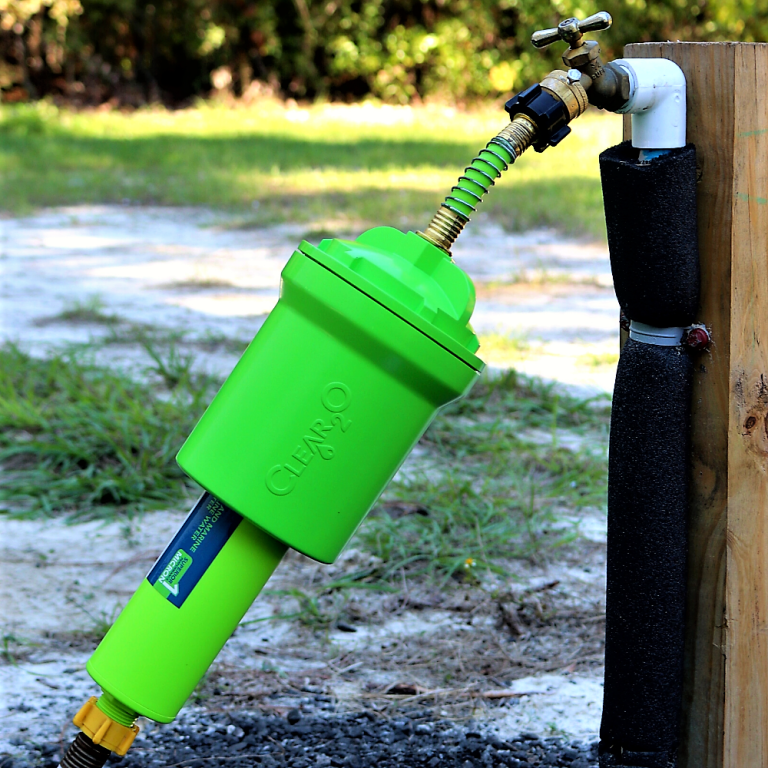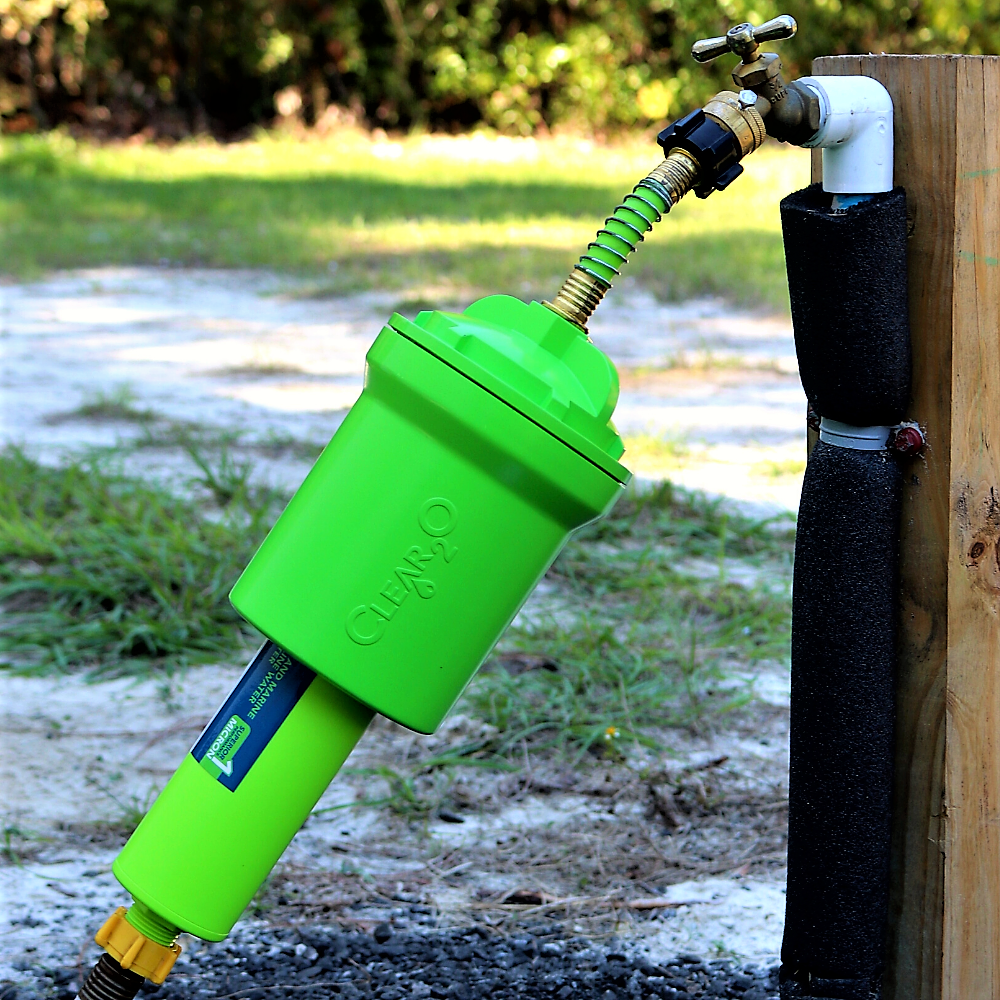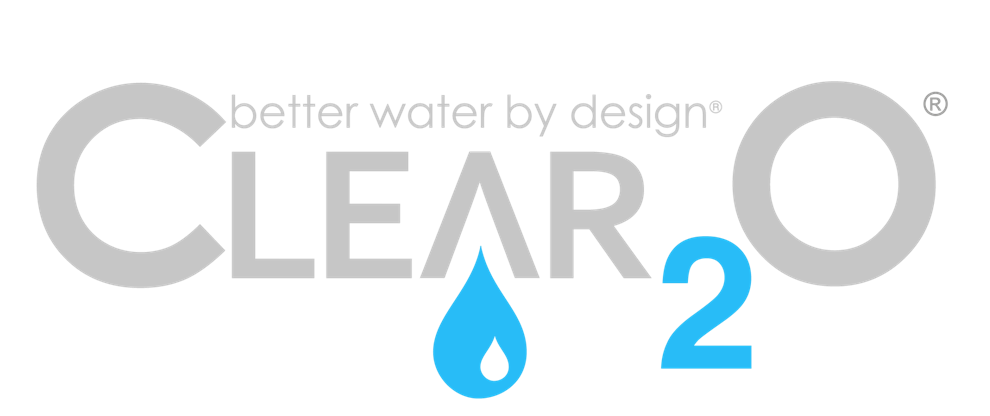

Virtually every RVer knows the value of clean water. That’s because so many of them have experienced dirty water firsthand.
Campgrounds – where many RVers obtain their water supply – are notorious for low water quality. Though you may think it’s relatively clean, it can be filled with large particulates like sediment, rust, and silt. What’s worse, it may also contain harmful contaminants like lead or mercury, as well as nuisance contaminants like sulfur gas (which produces that familiar rotten egg smell). On top of all that, water quality varies from campground to campground: there is a big difference between purity, quality and type from one location to another. And even if the water is safe, it may still have an unpleasant smell or taste.
Keep in mind, we aren’t just talking about drinking water. Obviously it’s critical to have potable water (suitable for ingestion), but you’ll also want the cleanest water possible for cooking and rinsing. The jury is out on how clean water needs to be for bathing, but the rule of thumb remains, the cleaner the better. After all, who wants to take a smelly shower?
If RV renters think we’re talking just to RV owners, think again. Often, renters don’t think in terms of water quality, either because they are inexperienced or because they assume the RV they rent will include some type of water filtration system. Maybe it does, maybe it doesn’t. A little advanced planning can avoid an unpleasant discovery once you reach your campground.
But whether you’re going for a month-long vacation or a short weekend excursion, nothing will put a damper on the proceedings faster than a water supply that is foul-tasting at best and unhealthy at worst. That’s why renters should be knowledgeable about the best water filtration systems available, and how each one performs its function.
Buying bottled water is certainly an option but it has far too many drawbacks, most of all for the environment. (For an eye-opening perspective on the impact of bottled water waste, check out The Water Project website.) The better solution is to filter your water at each campsite. It’s less costly and far more environmentally friendly. And, for the coffee lovers, bad water makes for bad coffee, and pouring bottle after bottle of water into your coffeemaker seems wasteful.
This may sound obvious, but before you invest in any kind of filtering system, ask the owner you rent from if their coach is already fitted with one. If it is, your problem is already solved. If not, there are a few options that can work well for all of your clean-water needs.
Before diving into the water, so to speak, a quick note about microns (µ), the unit of measure for filtration: A micron is an abbreviated term for “micrometer,” or a millionth of a meter (1/1,000,000 meters), which is about .00004 inches. For size comparison, a human red blood cell is about 5 microns across, while a human hair is about 75 microns across. In other words, size does matter – the smaller the micron size the more impurities it filters out.
While there is a wide selection of water filtration choices available to the RV owner, it’s hard to justify options like a single canister system, dual canister system, or, at the top of the line, a reverse osmosis system. As a renter, you should be looking at options that are low cost, easily installed, and can be just as quickly removed when your trip is done. With that said, there are two ideal solutions to consider:
Water Filter Pitchers
If you want to filter just your drinking water, a water filter pitcher can get the job done quickly and effectively. There are numerous brands; make sure you pick one that focuses on heavy metals and Volatile Organic Compounds (VOC) to rid the water of the iron and sulfur taste and smell. Pitchers with granular activated carbon (GAC) filters, despite their prevalence, are ill-suited to the task; solid-block carbon is by far the better medium. (NOTE: This is true for virtually all filtering products, not just water pitchers. And while a pitcher with solid-block carbon may not fill quite as quickly as one with GAC, it’s simply because the solid-block is removing more contaminants. Much better to wait a few extra seconds and get cleaner water.)

Inline Filters
If you want filtered water for your whole coach (which we highly recommend), pick up an inline water filter that attaches to your campsite spigot and drinking water hose and connect it to your RV. We suggest mounting the filter near the spigot; however, if you insist on mounting on the coach water inlet, make sure to use a flexible hose or 90° angle hose fitting, which will allow the heavy filter/hose to hang straight down without exerting too much pressure on your water inlet fitting.

You can purchase an inline filter, along with any necessary hose fittings, at most RV centers and camping websites, not to mention on Amazon. Assuming you purchase a high-quality filter, you can safely use it for all purposes, including drinking and cooking. This is by far the easiest solution, and you can be up and running for your next trip in no time. Make sure to check out the CLEAR2O RV & Marine Inline Filter, it filters at one Micron and removes most of the concerning contaminants, creating a much better campground water experience for you and your family.
Even as a renter, you deserve the best water you can get, not only to ensure the safety of everyone in your RV family but to maximize your enjoyment of the RV experience. The two options outlined are the most practical for a renter, based on performance and cost. But ultimately, if you spend a little time doing your homework up front, you have a far better chance of outfitting your RV with the best filtration product(s) to suit your needs.

###
ABOUT THE AUTHOR
Keith Bernard is president and CEO of CLEAR2O, one of the leaders in water filtration technology and products. The company’s line of products includes filtered water bottles, pitchers, in-countertop filtration, whole-house filtration and on-the-go RV filtration systems.
